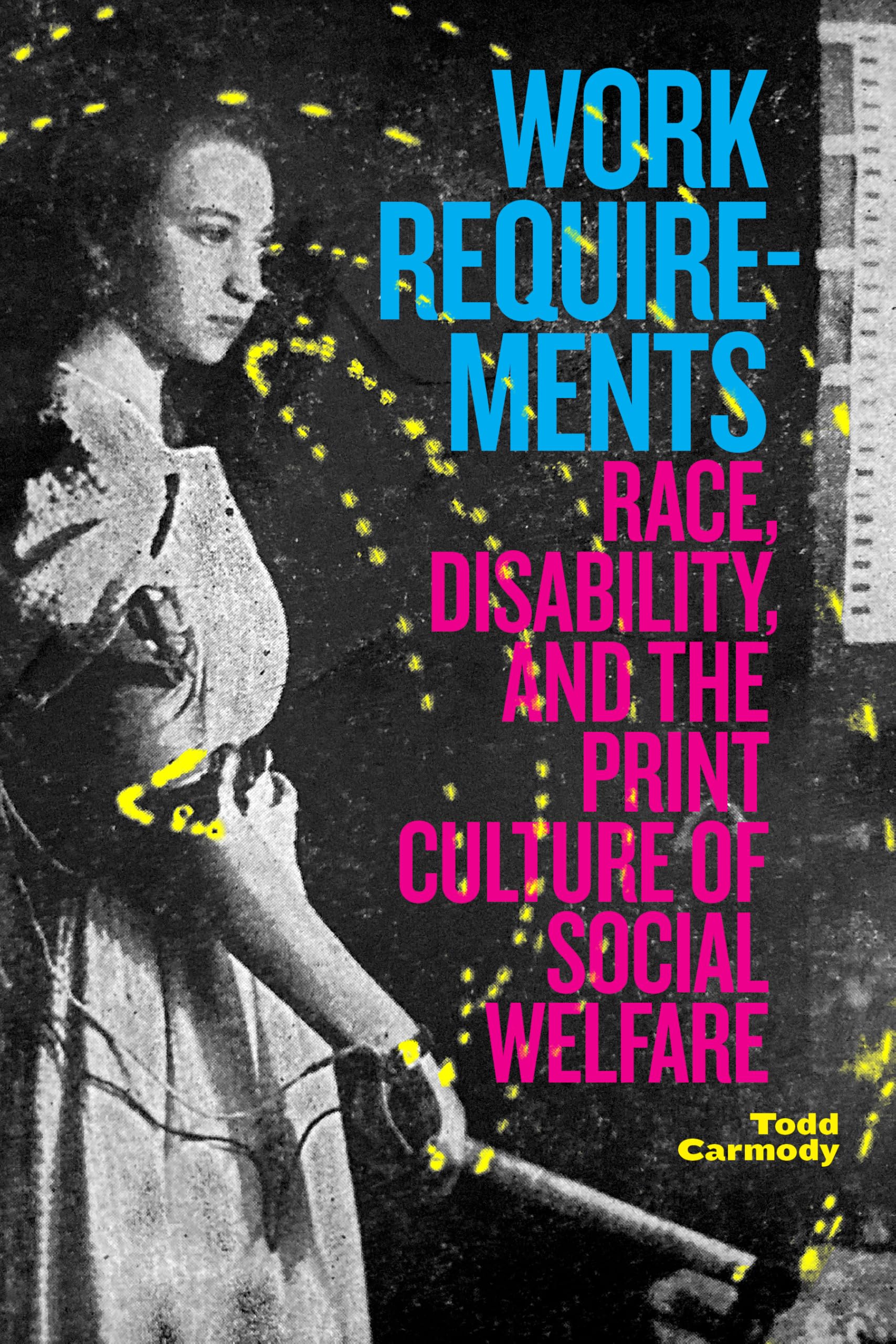Why do we attach such importance to our jobs? From the first question at a cocktail party (“so what do you do?”) to welfare work mandates, Americans hold employment status in very high regard. Even though the belief in a job’s ethical and moral value predates the American state—from the theology of Martin Luther to Benjamin Franklin’s doctrine of industriousness—something about our contemporary culture seems to fetishize work above all else.
In his book, Work Requirements: Race, Disability, and the Print Culture of Social Welfare, Todd Carmody argues that between the Civil War and the New Deal work acquired a sense of imperative purpose in American life—people must work. Despite the “increasingly fragmented nature of industrial production” especially during the Fordist era, “the work ethic’s anachronistic hold only grew stronger” (8). In those decades, America manufactured the assumption that work, “even the most patently debasing and plainly productive, is inherently meaningful” (16).
Beyond just meaningful, work is required of all who can. Much of the intellectual and emotional labor necessary to produce that conceptual common sense—like the physical labor necessary to build America’s literal infrastructure—came from those on the economic margins. Not only did poor people and people of color literally build America, but they also built the assumption that labor makes people worthy, a punishing, disciplinary cultural norm.
Building the assumption of work’s meaningfulness happened across many different institutions and types of media. Carmody’s first chapter studies the claims made by Civil War veterans seeking government pensions. At nearly 40% of the federal budget, Civil War pensions anticipated social welfare programs like Social Security, including corresponding debates over government so-called handouts and deservingness (33).
Black veterans in the late nineteenth century faced particular difficulties receiving benefits, often because formerly enslaved soldiers lacked prior records. Contemporaneous Black uplift narratives—success stories from postbellum Black figures, like Booker T. Washington—also offered a cudgel with which opponents of pensions could lambast veterans as lazy. If poor, formerly enslaved Black workers could make it in America, antagonists argued, why did veterans need government assistance. While Black veterans struggled to get their benefits, stories of Black bootstrapping success were used to dismantle the program itself.
